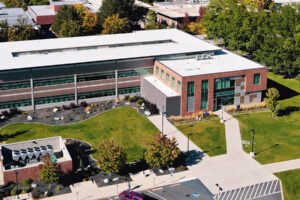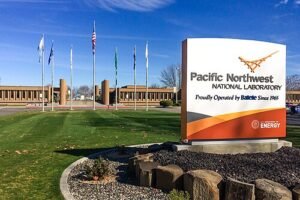Artificial intelligence is moving quickly into healthcare and cybersecurity systems. What is moving more slowly is accountability for how those tools are deployed, secured, and managed once they are in use.
In Eastern Washington, Spokane Falls Community College has launched a program that blends AI, healthcare systems, and cybersecurity training. On the surface, it looks like a workforce initiative. Underneath, it reflects a deeper issue facing institutions nationwide: AI is being adopted faster than organizations are prepared to govern it.
The question is no longer whether AI will be used in healthcare. It is who is responsible for ensuring it does not introduce new risks into already fragile systems.
AI Systems Are Making Decisions Inside High-Stakes Environments
Healthcare providers increasingly rely on AI for diagnostics, scheduling, data analysis, and operational efficiency. These tools influence real decisions affecting patient care, access, and safety.
Yet many organizations deploying AI lack clear ownership over how those systems are monitored, secured, and audited. When something goes wrong, responsibility is often diffuse. Vendors blame implementation. Leaders point to staffing shortages. Oversight arrives after damage is done.
That accountability gap is where risk compounds.
Training programs like the one at Spokane Falls are attempting to address part of the problem by preparing workers who understand not just AI tools, but the environments they operate in. The goal is not innovation for its own sake. It is operational competence in systems that cannot afford failure.
Cybersecurity Is an Accountability Issue, Not Just a Technical One
Healthcare systems have become frequent targets for cyberattacks, including ransomware incidents that disrupt care and expose sensitive data. As AI tools ingest and process more patient information, the stakes increase.
Cybersecurity failures are often framed as technical lapses. In reality, they are leadership and governance failures. Someone decided what level of risk was acceptable. Someone approved the system. Someone deferred safeguards due to cost, time, or staffing constraints.
By pairing AI education with cybersecurity fundamentals, the Spokane Falls program reflects an acknowledgment that accountability must be built into the workforce, not bolted on after deployment.
Workforce Gaps Don’t Remove Responsibility
Staffing shortages are real, especially in healthcare and public-sector technology roles. But a lack of trained personnel does not eliminate responsibility for system outcomes.
Institutions that deploy AI without ensuring there are qualified people to manage, secure, and evaluate those systems are still accountable for the results. Training pipelines become part of the accountability chain.
Community colleges are increasingly being pulled into that chain. They are expected to respond faster than four-year institutions and tailor programs to regional system needs. When they succeed, they help close risk gaps. When they fail, those gaps widen.
What This Signals About AI Governance
This program highlights a broader shift. Accountability for AI systems is moving closer to the point of use. Hospitals, colleges, and regional institutions are being forced to take ownership because national frameworks and regulations lag behind deployment.
That puts pressure on local leaders to make decisions about training, oversight, and risk tolerance now, not later.
AI in healthcare is no longer a future policy problem. It is a present operational one.
And as adoption accelerates, the institutions that invest in accountable use, clear ownership, and trained personnel will be the ones best positioned to avoid the failures others will eventually have to explain.











